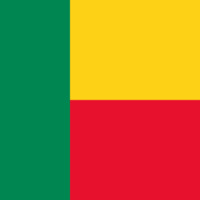Thesis
Coastal Islam: Religion and Identity among Minority Muslims in the French Colonial City of Porto-Novo, 1889-1939
- Title
- Coastal Islam: Religion and Identity among Minority Muslims in the French Colonial City of Porto-Novo, 1889-1939
- list of authors
- Tiffany Kathleen Gleason
- Abstract
- This study challenges commonly held notions that Islam in colonial societies was a monolithic religion and that Muslims universally self-identified as one population or umma. Instead I suggest that in colonial Porto Novo, religion was not the only defining or unifying feature of one's identity, but rather one element within a complex social structure more firmly centered on ethnic, commercial, and economic lines. Furthermore, the role of France in its colonies was complicated by the secularity of the public sphere which did not fall in line with policies that specifically targeted Muslim populations. These policies affected Porto Novan Muslims in French West Africa who were put under surveillance. In the high colonial era, the French administration readied itself for a larger pan-Islamic threat and fearing destabilization in its African territories. Yet, during this era, the Muslim populations of Porto Novo were synonymous with the merchant middle class. Thus, French colonial administrators had to contend with the fact that those on whom they relied to bolster the colonial economy were the same people they mistrusted and put under surveillance for practicing Islam. This same group of Muslims was also part of a wider Yoruba ethnic identity in addition to these economic and religious categories. Furthermore, French perceptions of the inter-ethnic divisions within the Muslim communities -those between the privileged Brazilian returnee group and the Yoruba- further complicated the way colonial society evolved in Porto Novo. I argue that through interactions with differing ethnic and religious African communities and the French colonial state and despite their minority status, Porto Novan Muslims significantly contributed to the modernization of their society. Through the histories of these marginalized populations, this dissertation explores how the interactions of minority populations of a shared faith negotiated their position in society through their reliance on a variety of identifying categories.
- Type
- Thèse de doctorat
- University
- University of California, Los Angeles
- Provenance
- Los Angeles
- Date
- 2014
- number of pages
- 271
- Language
- Anglais
- Spatial Coverage
-
 Bénin
Bénin
